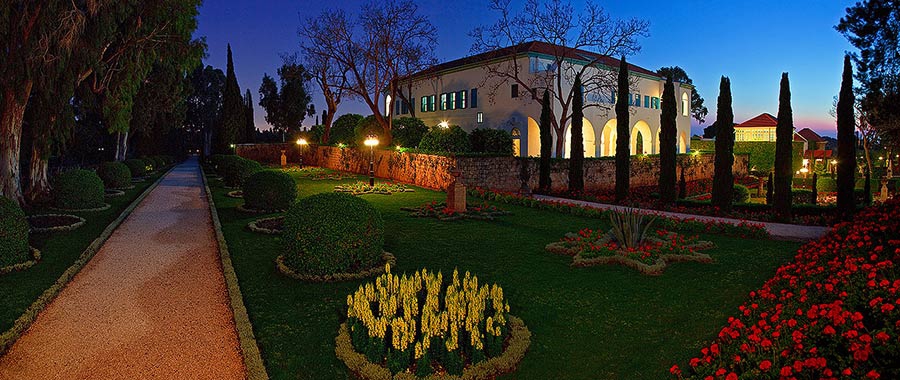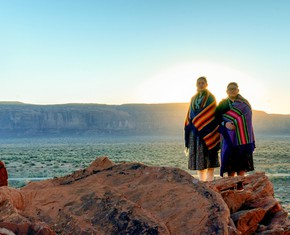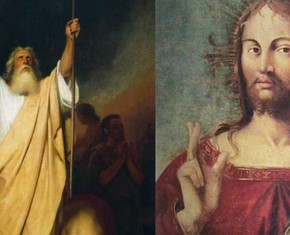The views expressed in our content reflect individual perspectives and do not represent the authoritative views of the Baha'i Faith.
Baha’is believe that the most great characteristic of their Faith is the specific provision Baha’u’llah made to appoint a center of his covenant:
As to the most great characteristic of the Revelation of Baha’u’llah—a specific teaching not given by any of the Prophets of the past—it is the ordination and appointment of the Center of the Covenant. By this appointment and provision He has safeguarded and protected the religion of God against differences and schisms, making it impossible for anyone to create a new sect or faction of belief. – Abdu’l-Baha, The Promulgation of Universal Peace, pp. 455-456.
”The most great characteristic of the Revelation of Baha’u’llah.” Sounds pretty important, doesn’t it? But what does Abdu’l-Baha mean by ”the Center of the Covenant” and what makes it so important and unique?
In no previous age has there ever existed an explicit written instruction as to whom the believers should look to for guidance after the ascension of the founder of their Faith. Certainly, each prophet of God had a primary disciple. For Krishna it was Arjuna; for Buddha, Ananda; for Christ, Peter; for Muhammad, Ali. Christ’s statement, directed at Peter, that “… you are Peter, and on this rock I will build My church” is taken by some Christians to mean that Peter was appointed by Christ as the leader of the Faith. This belief lies at the foundation of the Catholic Church, but it is the letters of the apostle Paul from which most Christian doctrine is drawn. Muhammad verbally made his son-in-law, Ali, his successor, but the elders among his followers felt Ali was too young to hold temporal power and was meant to be the spiritual leader only.
Students of history and deepened believers surely have noticed that the older faiths suffered multiple schisms after the passing of their prophets. Buddhism split almost immediately into two major sects, and later into more sub-sects. There are thousands of denominations of Christian churches, some born out of horrific episodes of Christian-on-Christian violence. Islam divided along the lines of who supported Ali and who did not—a division that still causes bloodshed to this day. None of these faiths have a single, central authority. Moreover, no Prophet since Moses left a blueprint for the institutions that would serve the community of believers. Baha’u’llah, however, abolished the priesthood and, to protect the unity of his Faith, left explicit instructions in his Will and Testament for the believers to turn solely to Abdu’l-Baha after his ascension:
The Will of the divine Testator is this: It is incumbent upon the Aghsan, the Afnan [the descendants of Baha’u’llah and the Bab] and My Kindred to turn, one and all, their faces towards the Most Mighty Branch [one of Abdu’l-Baha’s titles]. Consider that which We have revealed in Our Most Holy Book: “When the ocean of My presence hath ebbed and the Book of My Revelation is ended, turn your faces toward Him Whom God hath purposed, Who hath branched from this Ancient Root.” The object of this sacred verse is none other except the Most Mighty Branch. – Baha’u’llah, Tablets of Baha’u’llah, p. 221.
Now, you might suppose that with clear instructions like these, no one who believed in Baha’u’llah would have even attempted to break his explicit Covenant. Instead, that Covenant has been challenged repeatedly. But the Covenant of Baha’u’llah does not function by magically keeping people from challenging it. Its protective function has, however, ensured that all those who have arisen to challenge it have ultimately failed to shatter the Baha’i Faith’s unity.
That’s why the “most great characteristic” of this new Faith that teaches human unity is a provision to retain and protect its own unity.
Let’s not forget the uniqueness of the age we live in. We have the tools to either destroy the world or unite it. Technology grants us powerful weaponry, speedy travel, instantaneous communication, huge populations that speak a common language or languages. In the same way, we should also recall the ultimate purpose of Baha’u’llah’s Faith: the unity of the human race. It should be no surprise that Baha’u’llah left written instructions to maintain its unity:
Today the dynamic power of the world of existence is the power of the Covenant which like unto an artery pulsateth in the body of the contingent world and protecteth Baha’i unity.
The Baha’is are commanded to establish the oneness of mankind; if they cannot unite around one point how will they be able to bring about the unity of mankind?
The purpose of the Blessed Beauty in entering into this Covenant and Testament was to gather all existent beings around one point so that the thoughtless souls, who in every cycle and generation have been the cause of dissension, may not undermine the Cause. – Abdu’l-Baha, Selections from the Writings of Abdu’l-Baha, p. 208.
Next, I’d like to further explore the significance of this unique protective function.
You May Also Like
Comments

















This was where John 15 played a pivotal role in my search for Christ. In that chapter, Christ prepares His disciples for His ascension and imparts teachings we must assume are significant. He repeats a simple (difficult) commandment: Obey My commandment to love one another. IF you do this, you will remain in Me. IF you don't, you ...are cut off as a dead branch.
I believe this is the heart of our covenant with God. This is the core of all Faith whether revealed by Christ or Krishna, Buddha or Bahá'u'lláh.
I understood that the Orthodox church had valid claim to be original true church, but I also understood the words of Christ to say that God's guidance is not given to one religion (one child) only, but is revealed, as the Bible says, "at sundry times and in divers manners" to the people and age most in need. As I said in my essay, ...much of the dogma I and millions of other Christians, both Catholic and Protestant, was raised with came from the Epistles of Paul, not the words of Christ—words He says are spirit and life. (more)
Christ follows His revelation of the nature of God by explaining how it must be reflected in the behavior of the believer. Because God loves, therefore we must love. He warns that this behavior is difficult and likens it to a narrow gate that few enter. He follows this by illustrating how we can use reason to tell a true prophet from a false one.
Taken together, these things answered a question I'd had since childhood—why had God not spoken to us directly for 2000 years? The answer was, the God of ...Christ would not do that. He would not speak to us once in our collective youth, then not again until we were on our death bed at the end of the world. (more)